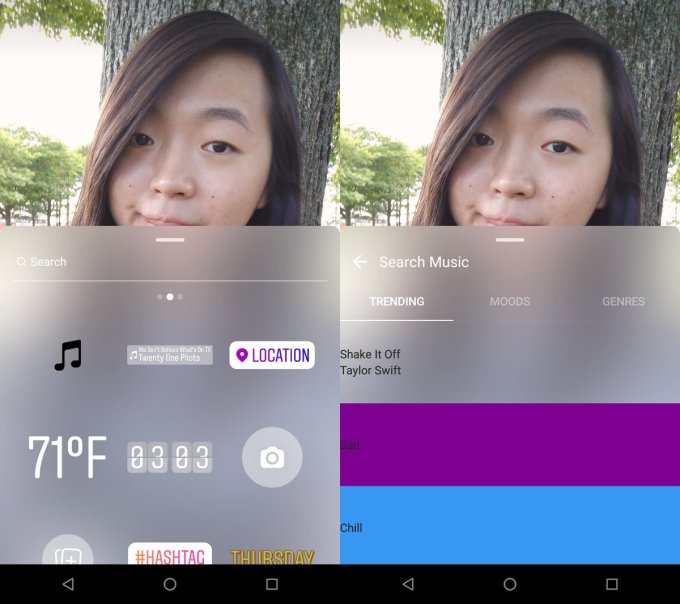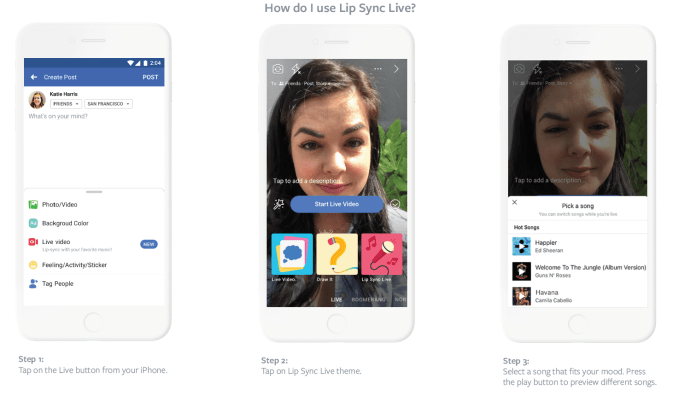But the most amazing aspect of this is that Facebook did it legally by signing agreements with major record labels. Desperation is driving companies to contemplate lawful strategies which appears to be a growing trend in the digital world. JL
Josh Constine reports in Tech Crunch:
Facebook users will no longer have their uploaded videos with copyrighted background music taken down thanks to a slew of deals with all the major record labels plus indies. When users upload videos with music, they’ll be notified if that song is allowed via the deals and fine to share, or if their video will be muted unless they submit a dispute to the copyright holder who then okays it through Facebook’s Rights Manager tool. Facebook will compensate artists and labels whose music is used.
Facebook users will no longer have their uploaded videos with copyrighted background music taken down thanks to a slew of deals with all the major record labels plus many indies.
Facebook is also starting to test a feature designed to steal users from teen sensation app Musically. Facebook’s new Lip Sync Live lets users pick a popular song to pretend to sing on a Facebook Live broadcast. Hundreds of songs will be available to start, including “Havana” by Camila Cabello, “Welcome to The Jungle” by Guns N Roses, and “God’s Plan” by Drake.
When users upload videos with music with the new rules in effect, they’ll be quickly notified if that song is allowed via the deals and fine to share, or if their video will be muted unless they submit a dispute to the copyright holder who then okays it through Facebook’s Rights Manager tool. Facebook will compensate artists and labels whose music is used, but it wouldn’t disclose the rates or whether they’re calculated by upload or video view.
The launch is separate from the Sound Collection feature Facebook announced in December that only lets users add sound effects or no-name music to their videos. Facebook won’t be offering a tool, at least not yet, that lets users select popular copyrighted music to add to their videos — a feature TechCrunch has been calling for and that was recently prototyped for Instagram.
That’s unfortunate, as most users don’t have the editing tools to add music before uploading a video, especially not from their phones. But at least if there’s a song playing on a stereo in the background, users won’t get their videos blocked like before. Luckily, Facebook says in the coming months it plans to “start testing options for adding the music you love to Facebook Stories.” That could use the same design as the Instagram feature we reported.
Today’s announcement is a big step in right direction for Facebook as it seeks ways to encourage original sharing. A shaky, off-the-cuff video from a friend can be tough to watch in the feed, particularly if it’s longer than the 15 second clips people now add to their Stories. But with the right soundtrack, a boring clip becomes epic, or a nice one becomes truly sentimental. Music-equipped videos could boost watch time and engagement on Facebook without relying on viral pap the company has demoted in service of users’ mental well-being.
Instagram’s unlaunched music stickers prototype lets users add popular songs to their Stories.
Facebook vs. Musical.ly
Facebook has had a tough time keeping teens on its social network, as evidenced by declines in popularity amongst the demographic according Pew’s survey data. Though teens trying to look cool might say they use Facebook less than they actually do, the responses reveal a downward trend for the app amongst the youth.
One app that’s had no problem recruiting them is lip syncing app Musical.ly . It’s rife with concerning, possibly Child Online Protection Act-violating videos of tween girls dancing to risqué pop songs. But the opportunity to perform without necessarily having singing talent and the easy to grasp content prompts have grown the
app to 200 million registered and 60 million monthly active users.
Facebook wants to hook those kids as soon as they’re 13 so they become lucrative lifetime users. So Facebook is now testing Lip Sync Live in several markets. Users first go to broadcast Live, select the Lip Sync Live option, select a song, mouth the words while adding filters and effects during the stream, and then can permanently share the resulting video. The Live With feature for co-streaming with a friend lets people duet on their favorite jam. Viewers can tap on titling for the song and artist to follow that musician on Facebook, though I think there should be a way to tap through to hear the song on Spotify, Apple Music, or YouTube Music.
It’s going to be tough for Facebook to suddenly become cool enough for kids to enthusiastically lip sync, especially since it requires going Live which notifies their friends. That plea for attention could make some users too shy to strut their stuff on camera. Lip syncing might work better for static videos where people can be sure they looked good enough before sharing, or within Stories that friends have to actively go watch.
Music is one of the most core ways human share and connect. It’s actually surprising Facebook has stayed at arm’s-length from the record industry for so long.
iLike’s music streaming app was one of the most popular on v1 of Facebook’s platform, but the tech giant moved in a different direction. It also shut down landing tabs in 2012 that bands used to stream music from their Pages with apps like BandPage. And though Spotify got its big break in America through viral distribution in Facebook’s now defunct desktop sidebar ticker, Facebook never made a move to invest in or acquire the startup that’s since gone public.
At least, it’s good to see Facebook concentrating on the social side of music now that it has label deals in place rather than trying to build a Spotify competitor of its own. If it can legally build a way for anyone to add soundtracks to their videos, we might watch a lot more of them. Not only would that acclimate us to more video ads, but it could let friends express a different side of themselves with the emotional power of pop music.























0 comments:
Post a Comment